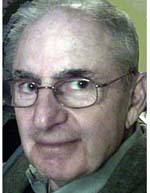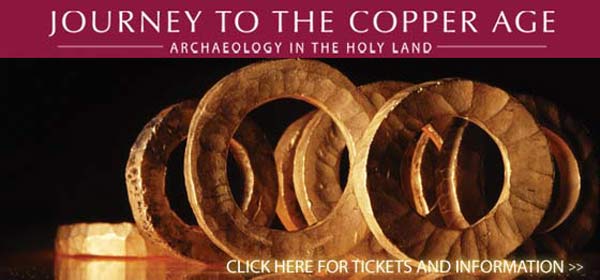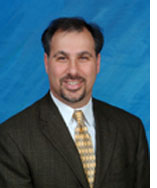| |
|


THE VIEW FROM JINSA
Stephen Hadley's appalling speech
By Shoshana Bryen
 WASHINGTON, D.C—The determination to create a Palestinian State is part of President Bush's "Freedom Agenda," said National Security Advisor Stephen Hadley, who gave a speech this week remarkable for denigrating both Israel's own faith in democracy and its sacrifices under the Oslo Accords. Hadley said, among other things: WASHINGTON, D.C—The determination to create a Palestinian State is part of President Bush's "Freedom Agenda," said National Security Advisor Stephen Hadley, who gave a speech this week remarkable for denigrating both Israel's own faith in democracy and its sacrifices under the Oslo Accords. Hadley said, among other things:
For much of the last century the Freedom Agenda seemed to inform U.S. policy in every region of the world except the Middle East. (Palestinian statehood is possible now because) Key segments of the Israeli public have given up the aspiration for a 'Greater Israel' and no longer wish to retain control over the West Bank and populate it with Israeli settlers... the Israeli public... (has) come to understand that the establishment of a free
Shoshana Bryen
and democratic Palestinian state... can advance international recognition and acceptance of a free and democratic Israel as a homeland for the Jewish people.
We are appalled that a U.S. government official believes international recognition of Israel is dependent on the creation of a 23rd Arab country. Israel's permanence and legitimacy are not conditional and not subject to review. We are further appalled that Hadley thinks Israel woke up in the 21st Century and said, "Hey, let's give up 'Greater Israel' and help the Palestinians with democracy!" Been there; done that; failed.
The Oslo Accords were enormously problematic, but they were remarkable in one aspect. Israel had been rejected, vilified, attacked and undermined by the Arab world before and after it found itself in control of more than a million Palestinians as a result of a defensive war in 1967. The Palestinians, who were never ever sovereign, were brutalized from 1948-67 as Jordan and Egypt illegally occupied territory intended as their state. Yet it was Israel, at Oslo in 1993, which offered the Palestinians a path to statehood in the belief that positive nationalism offers the Palestinians democracy, liberty and freedom, as Zionism did for Jews. It was a breathtaking offer by Jerusalem, very much in the mode of President Bush's belief, which Hadley echoed, "Freedom is the right of every person... it is God's gift to every person... freedom was the basis of our founding as a nation."
And it was Israel's. Both stem from Old Testament emphasis on the value of each person as having been created in the image of the Creator.
Israel was offering a "Freedom Agenda" in 1993, with high hopes and expectations - which were dashed on the reality that Palestinian leadership under Arafat and his deputy Abu Mazen were interested in acquiring territory only to use it as a launching pad for terrorism against Israel. The Oslo experience radicalized the Palestinians, and terrorism against Israel reached new levels, culminating in the 2000-2004 Palestinian war against Israeli civilians. Israelis took a more than reasonable step back.
Israel in 2007 appears willing once again to trust that there can be a positive Palestinian nationalism and a Palestinian leadership that has broken from its own past. Without judging Israel's decision, if Israel is willing to try it again, then Israel should be understood to be taking a second leap of faith. It is unbecoming of American officials to ignore the depth of the suffering Israel experienced at the hands of Palestinian terrorists and fail to appreciate Israel's willingness to try again to bring the promise of democracy and liberty to people who appear unwilling to accept it.

Nu, Mr. Billionaire, let's talk about Israel
By Dov Burt Levy
 SALEM, Massachusetts—Sheldon Adelson's $20.5 billion dollars make him the third richest American, according to Forbes magazine. Only Bill Gates ($53 billion) and Warren Buffet ($46 billion) exceed Adelson's fortune coming from Nevada casinos and real estate. SALEM, Massachusetts—Sheldon Adelson's $20.5 billion dollars make him the third richest American, according to Forbes magazine. Only Bill Gates ($53 billion) and Warren Buffet ($46 billion) exceed Adelson's fortune coming from Nevada casinos and real estate.
Heady stuff to be the richest Jew in America. But Adelson's riches did not make him so powerful that he could decline talking to a JTA reporter about his attempt to control/influence a proposed AIPAC action. Adelson's call to Howard Kohr, AIPAC director, expressed Adelson's opposition to a congressional letter asking President Bush to increase financial aid to the Palestinians before the Annapolis Middle East Peace Conference.
Dov Burt Levy
This raises what I call a fundamental moral question. To what extent should American Jews interfere and influence public policy in or about Israel. The issue is especially thorny on such difficult questions as how to achieve peace and security in a region filled with hostile Arab leaders and wannabe suicide bombers.
I have no problem with Americans wanting to help out with Israel's social, educational and health needs. These are mitzvot.
On war, peace and defense, it's clear that the citizens of Israel, living in Israel, are the ones who pay the price for their government's decisions and policies. For better or worse, we should trust them to make the best decisions. Who says foreigners know better when Israelis are themselves split down the middle on so many critical policy questions?
Let's take it down from the billionaire level. Instead, let's talk about two average guys who live among us and who, over the years, have bent my ear about their obsession with Israeli public policy.
One is a local man who can't stop talking about Israel's occupation of the West Bank, which in his opinion is the most grievous act in international life. He is obsessed that all American Jewish organizations do not debate the occupation.
The other guy lives in Connecticut, and is a self-proclaimed militant right wing supporter for a military solution in the Middle East. In his view, Israel should beat the hell out of Iran, Syria and anybody else hostile to the Jewish state. He continually sends me emails listing the topics that my columns should discuss.
Both have the same premise. Get American Jews to collectively pressure Israel to fulfill their wishes, which in one case is withdrawal, the other case aggression. Both are willing to bad mouth the present government of Israel and the Israeli people for not doing what they wish.
Surprise, neither of them can succeed. Reason: Israelis are not listening and don't care.
Do you know or care what Israelis say about the American government, or what the French or Russians or Germans say?
Beware of unintended consequences. We should know that this criticism, especially potent when it comes from Jews themselves, helps tilt non-Jewish Americans against Israel. Not overnight, but little by little. It's an added burden that Israel surely doesn't need, especially when combined with the anti-Israel so-called progressive left, the Arab lobby and the right wing anti-Semites.
You ask how I can say this when I write so often about Israel?
Yes, I often write about Israel, but not my ideas for their military or defense policy.
I do not think I can influence Israel's policies from Massachusetts, nor do I think I should, even though I have two grandchildren serving in the Israeli army. My thoughts, hopes and aspirations are well and constantly expressed by Israeli columnists and politicians. My thoughts are not unique under the Israeli sun, and neither are the opinions of any other Americans.
I want to be clear. I don't argue restricting free speech. However, in my view, people who are not there and who do not pay the price for decisions gone awry ought to be more circumspect.
Back to Sheldon Adelson, with whom I share a same-year Boston birth, a dirt-poor childhood, and selling newspapers at age 12. To him I say, "Sheldon, let's talk. I have no problem with your discouraging an action by Congress or the American president. But, I hope you will be more modest in pressuring the Israeli government to adopt your political opinions on war and peace. You and I, while living in America, ought to accept what the Israeli electorate chooses to do."
At 94 today, will I see peace in my lifetime?
By J. Zel Lurie
DELRAY BEACH, Florida—On November 27, 2007 at Annapolis. a few moments after the President of the Palestine National Authority and the Prime Minister of Israel had promised, to begin vigorous, serious and continuous negotiations to arrive at a peace pact within 13 months, a CNN reporter commented: ‘This is the beginning of the beginning.”
I would have called it the end of the beginning.
The beginning actually occurred 60 years ago less two days, on November 29, 1947, when in a converted factory in Lake Success, the United Nations General Assembly voted by a two-thirds majority to create two states in Palestine, a Jewish state and an Arab state.
I was there. I watched the furious Arab delegates, led by Azzam Pasha, the Egyptian head of the Arab League, and Prince Faisal of Saudi Arabia, stalk out of the room. I followed them to the press section where Azzam Pasha declared war. He said “any partition line drawn in Palestine will be a line of fire and blood.”
The Jews were ecstatic. A state at last. In the lobby outside they were dancing. In the delegates lounge they had surrounded Abba Hillel Silver, head of the Jewish Agency, to drink a lechayim. The Israeli delegation had left for the ailing Chaim Weizmann’s hotel room to give him the good news.
At Annapolis, the Foreign Minister of Saudi Arabia, who is Prince Faisal’s son or grandson, led the Arab League delegation into the hall and not out of it.
November 29, 1947 was the real beginning but there were several other ends of the beginnings over the years, There was Anwar Sadat’s startling visit to Israel in 1977 and his declaration “No more war.” Israel and Egypt had fought four wars since 1948.
This was the beginning of negotiating an Egyptian-Israel peace treaty. It took over a year for President Jimmy Carter, devoting his time and energy with constant visits to Cairo and Jerusalem to hammer out a peace treaty that has held up for the last 30 years.
President Bush has made it clear that he will not mediate. He will not arbitrate. He will not make bridging proposals as did President Carter, with the invaluable help of Moshe Dayan.
They were successful 30 years ago. No shots have been fired in anger in the Sinai since then.
Reaching an agreement with the Palestinians will be much harder, as President Clinton discovered. The core issues dividing them - Jerusalem, refugees, settlements, borders, water, security from suicide bombers - are much broader, deeper and more ingrained than the Sinai.
These core issues have never been tackled. The Oslo Accords were signed in September 1993 on the White House lawn with President Clinton’s arms around Yittzhak Rabin and Yasser Arafat, exactly the same posture as the Annapolis photo of Bush embracing Olmert and Abbas,
The Oslo Accords might be called another end of the beginning. They were followed by several implementation meetings, in Cairo, Paris, Wye River and Sharm al Sheikh. They covered economic relations and the gradual transfer of territory to the Palestine Authority.
All of these agreements, none of which dealt with core issues, were abrogated on the outbreak of Arab violence and suicide bombings in 2000 after Ariel Sharon’s invasion of the Temple Mount accompanied by about a hundred cops and soldiers.
The Army took over completely. Over 500 checkpoints confined the Palestinians. Jewish settlements in the West Bank almost doubled. Expensive roads, forbidden to the Palestinians, were constructed. A separation barrier was built on Palestinian land destroying tens of thousands of olive trees and separating Arab farmers from their fields. Hamas terrorists took over Gaza.
Now Olmert and Abu Mazen (a.k.a. Mahmoud Abbas) have promised to try to solve all these issues and many more in 13 months. I wish them well.
Annapolis was essentially a show place but I don’t wish to denigrate its achievements.
The core issues were placed squarely on the table for the first time. Olmert has appointed high level committees to deal with each of these issues.
The United States will mentor the negotiations. President Bush has appointed General James Jones, the retired commander of NATO forces, to oversee the security problems. Tony Blair will convene a donors conference to provide funds for Palestinian Prime Minister Saalam Fayed.
Meanwhile I became 94 today, December 4. Will I see peace in my lifetime?
Editor's Note: Happy, happy birthday Zel. Our biggest Mazal Tov includes the wish that you shall celebrate many, many more!
|
A wonderfully cohesive program brilliantly executed ... Zina Schiff is a first rate violinist fully up to the music's tremendous technical challenges ... who can get inside the soul of Bloch's extravagantly expressive music |
|


A Challenge for Jewish School teachers: is your classroom a 'big tent' welcoming all?
By Alan Rusonik
 SAN DIEGO—A good friend of mine recently brought an approach to the Jewish community to my attention, and I wanted to share this information with you. The approach is called “Big Tent Judaism.” According to their website, “Individuals and organizations that practice a Big Tent Judaism seek to engage, support and advocate for all those who would cast their lot with the Jewish people, regardless of prior knowledge or background.” SAN DIEGO—A good friend of mine recently brought an approach to the Jewish community to my attention, and I wanted to share this information with you. The approach is called “Big Tent Judaism.” According to their website, “Individuals and organizations that practice a Big Tent Judaism seek to engage, support and advocate for all those who would cast their lot with the Jewish people, regardless of prior knowledge or background.”
“Big Tent Judaism” is a coalition coordinated by the Jewish Outreach Institute (JOI), an independent, national organization that works to open hearts, minds, and doors into the Jewish community for all who would cast
Alan Rusonik
their lot with ours, including interfaith couples and families, Jews-by-choice, and unaffiliated and unengaged Jews.
According to their website, to facilitate the goals of Big Tent Judaism, the Jewish Outreach Institute has articulated ten principles that will serve as a framework for a coalition of Jewish communal institutions that desire to be open and welcoming to all who approach. The principles will help Jewish institutions reach and serve all Jewish households—including the majority at any given time that is not participating in Jewish communal life. The ten principles include: Welcome All Newcomers; Celebrate Diversity; Offer “Free Samples”; Deepen Jewish Engagement; Provide Quality “Customer Service”; Lower Barriers to Participation; Increase Points of Access; Create Partnerships; Enlist Active Members for Outreach; and Better Best Practices.”
Most of you reading “Tidings” (a publication for teachers published by the Agency for Jewish Education in San Diego) are classroom teachers, and it is to you that I pose the following questions: Is your classroom a “Big Tent?” or can you better apply the “Big Tent Judaism” approach in your classroom? Which of the “ten principles” do you currently practice, and which ones do you need to improve upon? What resources do you have at your disposal so that you can inculcate the “Big Tent” approach in your classroom?
Big Tent Judaism takes its lead from the values and vision of our Biblical forbearers Abraham and Sarah’s tent, which was open on four sides to welcome all who approach. If you haven’t already, I strongly urge you to consider the “Big Tent” approach in your classroom, and speak with your school director and rabbi to make your classroom welcoming to all. Jewish education is one of the “points of access” for families mentioned in the ten principles, which puts all of us at the forefront of this important initiative. There is so much at stake in American Judaism today. We must look at our holy task as teachers to the Jewish people with a sense of urgency. I strongly advocate for the Big Tent approach to be a motivating factor in all of work.
|
|

